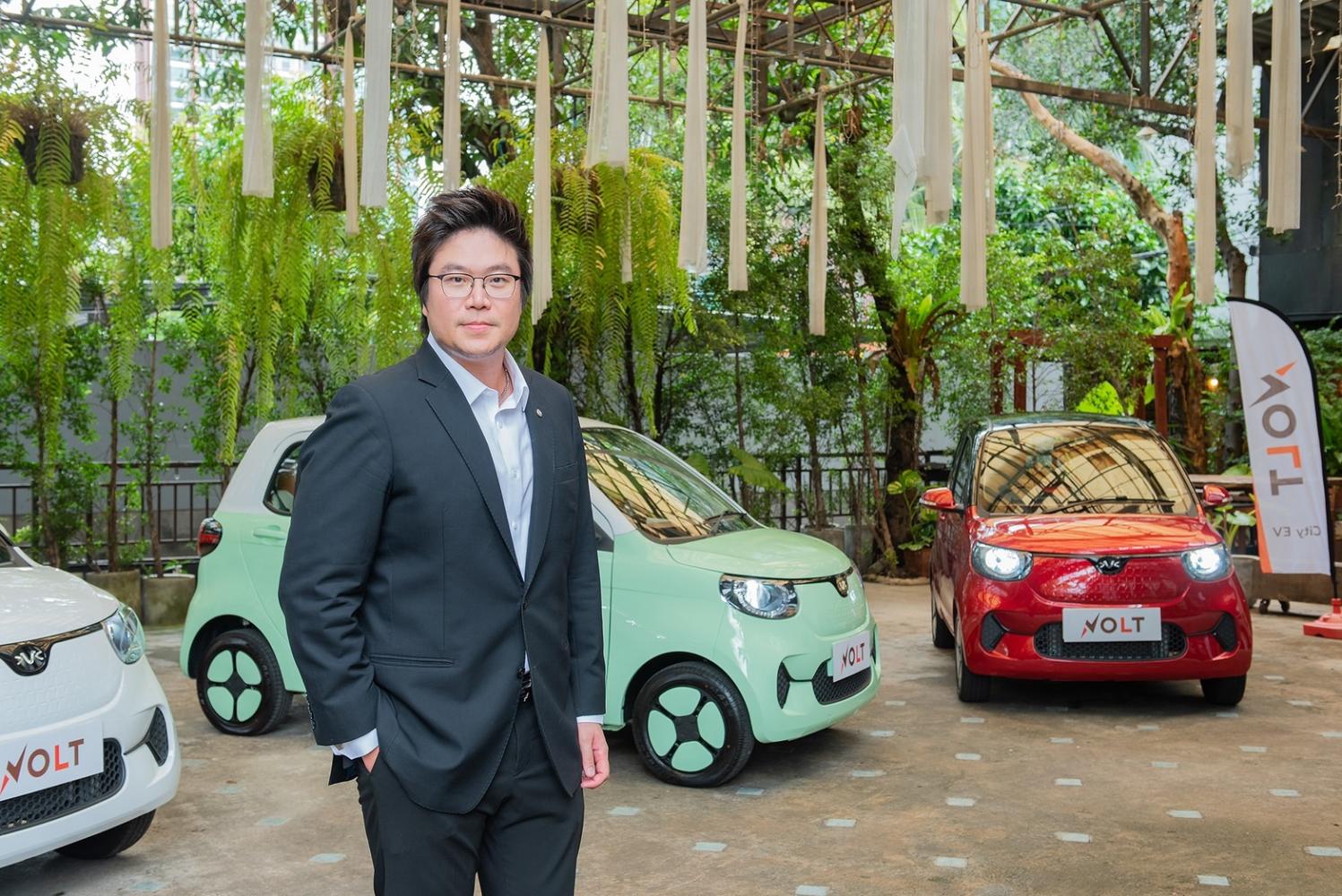
EV Primus Co, the distributor of China's second-largest automaker DFSK (Dongfeng), is planning to set up an "EV supermarket" for motorists with varied lifestyles as it strives to compete in the electric vehicle market.
The company believes car brands may not always be the greatest draw for customers.
After launching the urban car Volt in July, EV Primus will continue to introduce models from Dongfeng and other car makers to the market via its EV supermarket.
"We will mix together car brands with prices ranging from 300,000 to 3 million baht," said Pitaya Tanadamrongsak, managing director of EV Primus. "The idea is to give prospective car buyers a new experience when they come to showrooms that offer a variety of EV brands."
The company expects to sell at least five different car brands over the next four years. These include battery EVs and extended range EVs, with generators to supply electricity to batteries.
Mr Pitaya believes the EV supermarket concept suits the company because it is not a large multinational auto firm that makes huge investments to set up branches in Thailand.
"We have to admit we are as small as a mouse," he said. "We cannot fight elephants. We must run faster to differentiate ourselves from our rivals."
The shift to an EV supermarket comes as many major companies, both in and outside the auto industry, have entered the EV market, intensifying competition.
Chinese automaker BYD announced earlier a 17.8-billion-baht investment to build an EV manufacturing facility in Rayong, with annual production capacity of 150,000 EVs.
National oil and gas company PTT Plc and Taiwan-based Hon Hai Precision Industry Co, a multinational electronics manufacturer, are jointly developing an EV factory worth US$1-2 billion in the Eastern Economic Corridor. They initially aim to provide a service to assemble EVs for other companies, with a capacity of 50,000 units per year.
EV Primus announced a co-investment to build a plant in Chachoengsao to assemble EVs, notably brands under Dongfeng, with a budget of more than 400 million baht. Annual production capacity stands at 4,000 units.
Mr Pitaya said many automakers in Europe and Japan have established brands for petrol-powered cars, but for EVs, he believes buyers are willing to try something new.







